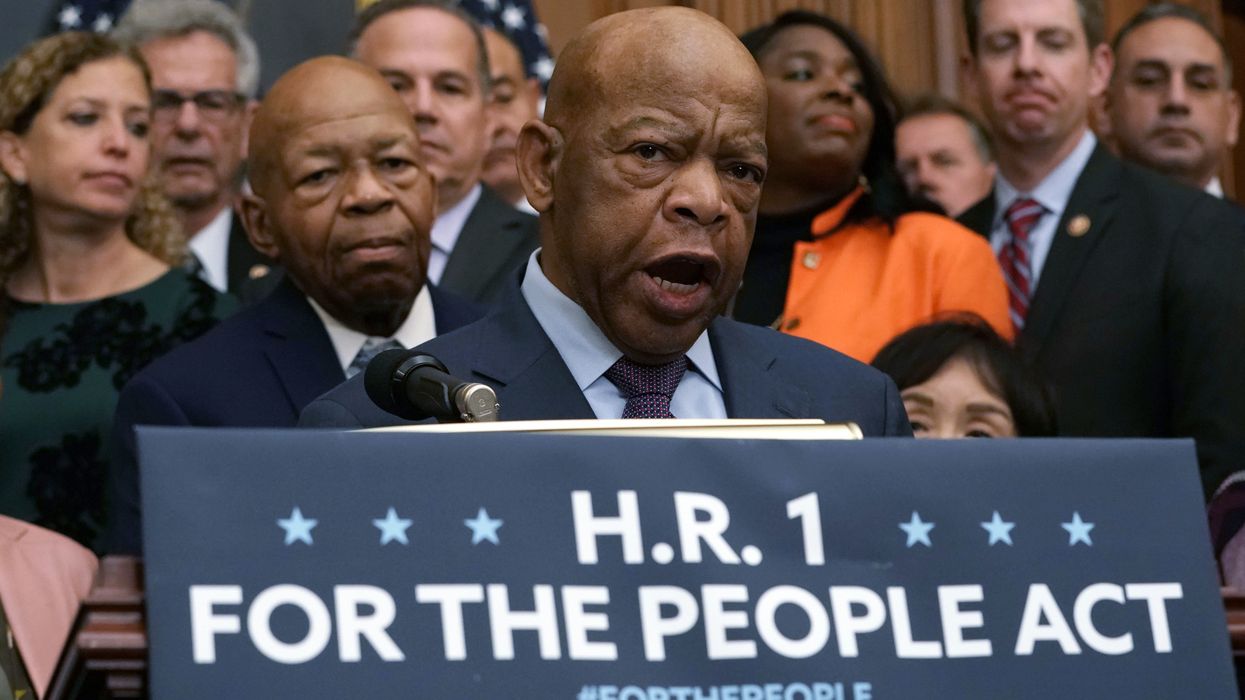Weissman is president of Public Citizen, a nonprofit consumer advocacy organization.
One good thing came from the Supreme Court's horrendous Citizens United decision a decade ago: an ever-expanding grassroots movement to rescue our democracy from the iron grip of Big Money.
The organizing is paying off.
In 2014, it led to a Senate vote for a constitutional amendment to overturn Citizens United. It almost certainly would have led to that horrid decision being overturned by the Supreme Court – if Merrick Garland had been confirmed as a justice.
Now, thanks to that movement, the Democratic leadership of the House of Representatives made the For the People Act – the top priority legislation considered by the House – a sweeping pro-democracy and anti-corruption package. The House passed the bill, known as HR 1, in March by a vote of 234-193. It is the most consequential pro-democracy legislation of the past 50 years.
Driving Big Money out of politics: A handful of superrich people are shaping our elections. Candidates spend their time begging for cash from the wealthy and legislating to fulfill those donors' desires – which are dramatically different than the wants and needs of regular people. The superrich don't just have an outsized influence over who wins but over what gets discussed in campaigns and what legislative ideas receive serious consideration.
HR 1 would replace the current, corrupt campaign finance system with one that relies on small donors and public matching funds. It ends dark money by forcing disclosure of all election-related spending, and it calls for a constitutional amendment to overturn Citizens United.
Protecting the right to vote: Empowered by a 2013 Supreme Court decision that gutted the Voting Rights Act, state Republicans have adopted a wide range of schemes to keep people of color and young people away from the polls. And President Trump, of course, has done everything in his power to encourage, enable and expand these voter suppression efforts. Altogether, these efforts are keeping hundreds of thousands, and probably millions, of Americans away from the polls.
HR 1 would enact same-day and automatic voter registration, and it commits to protect the sacred right to vote by calling for restoration of the Voting Rights Act.
Voters get to decide: Gerrymandering has become the science of subverting democracy – fostering a rigged system in which politicians hand pick their electorate. Armed with sophisticated computer programs, state officials are drawing congressional districts (as well as those for state houses) with mathematical precision to advance the interest of whatever party is in power in the state. Historically, both parties are guilty of severe gerrymandering, but Republicans took advantage of their 2010 sweep of state elections to draw districts wildly in their favor.
HR 1 would establish that districts must be based on transparent factors rather than partisan self-interest.
Curtailing corruption: Trump is a walking, talking violation of basic standards of ethics and morality. But it's not just Trump himself. His administration has enabled a total corporate takeover of our government, with former corporate lobbyists, lawyers and executives in charge of agencies overseeing the industries for which they previously worked (and likely will again).
HR 1 would force the president to reveal his tax returns and calls for a sell-off of all business interests. It would slam shut the revolving door through which lobbyists go into government. And it would establish an ethics office and binding ethics rules on members of Congress.
Of course, bills don't become law by passing one chamber of Congress.
Senate Majority Leader Mitch McConnell, who believes in precious little but is firmly committed to blocking democracy reform, greeted passage of HR 1 with a declaration that there wouldn't be a vote in the Senate.
Why?
"Because I get to decide what we vote on."
He said the bill was a "power grab."
He was right about the "power grab" part – it's a power grab away from the corporate elite, returning power to the people. That kind of power grab is also known as "democracy."
On his other point, McConnell was only partially right.
If and when the public applies enough pressure, then McConnell's vice grip over his party will loosen and there will be a vote. Admittedly, the odds are very long of this happening in the current Congress.
But the growing demand to rescue our democracy from further slide into corporate domination will not be denied. We stand on the precipice of a true democracy awakening.



















